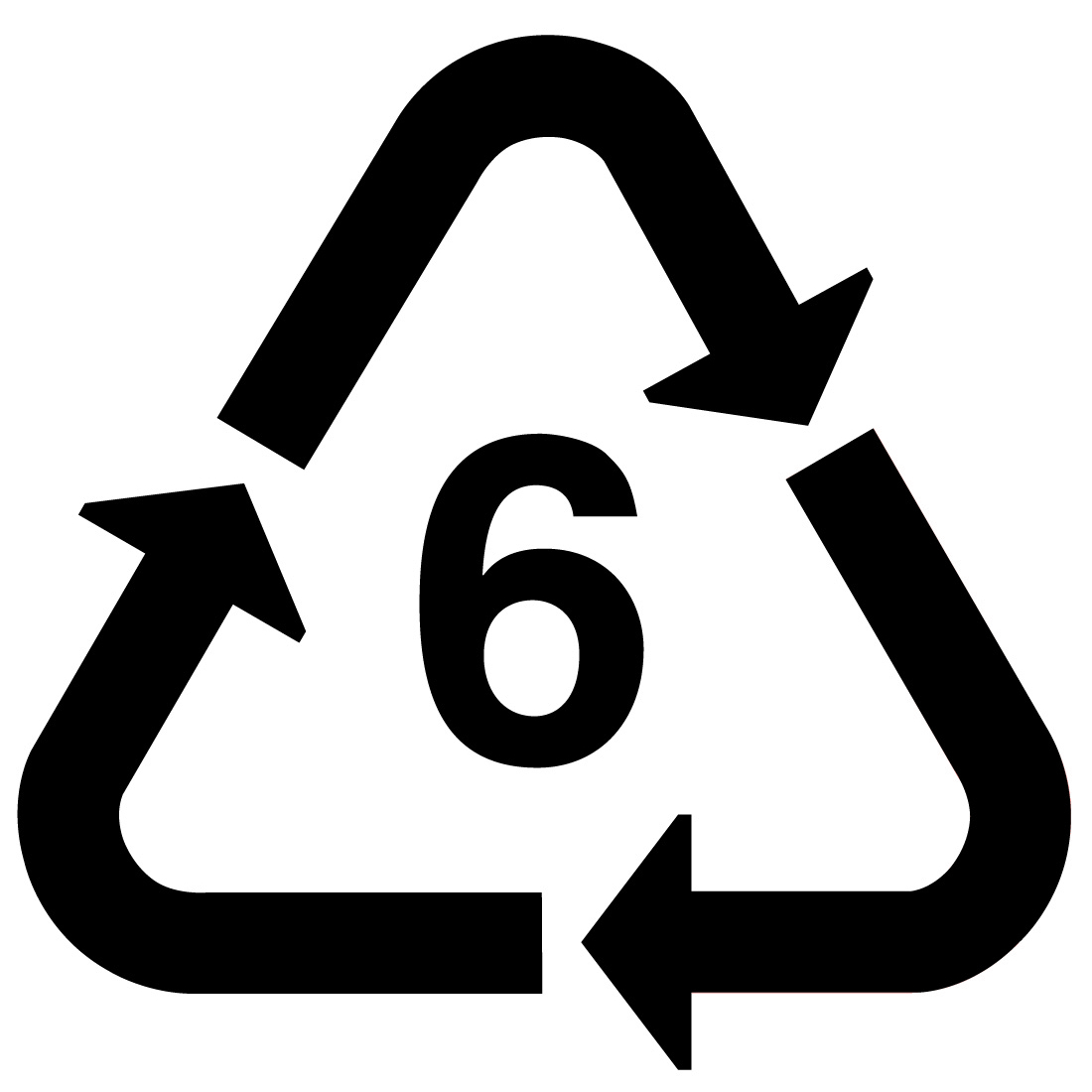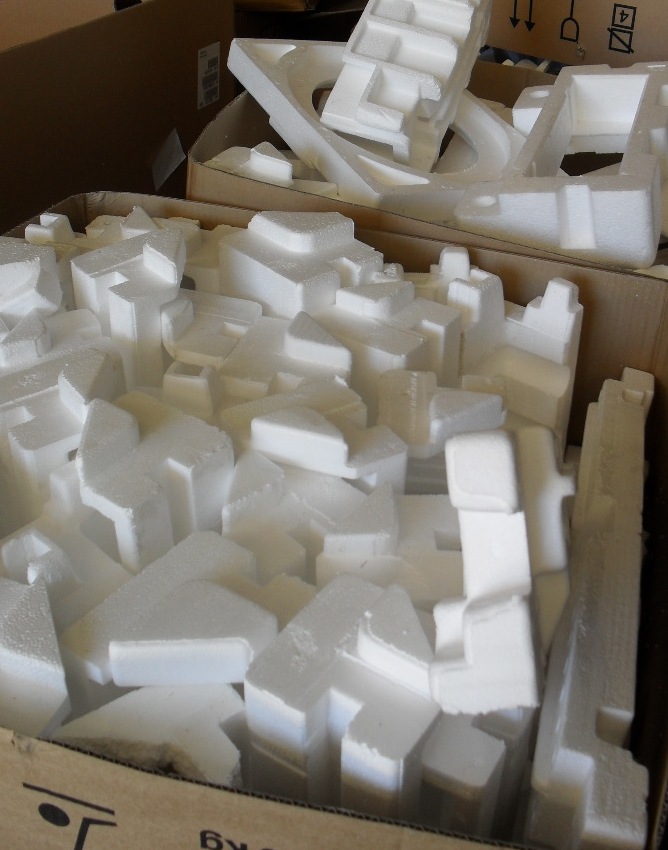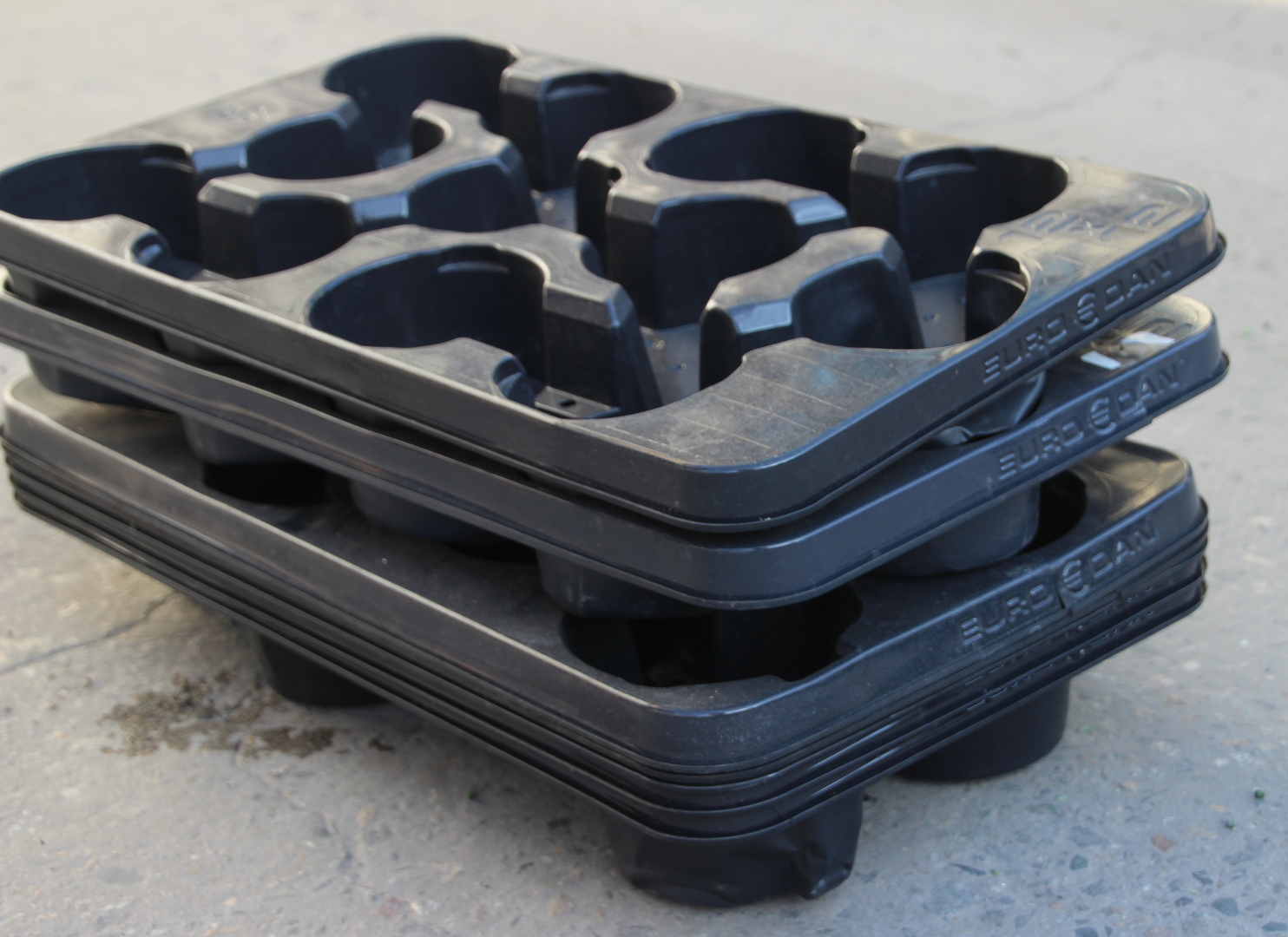
(EPS) – Expanded Polystyrene
The manufacture of EPS starts by adding an expanding agent to the raw bead. When heated, the polystyrene bead expands to form small spherical balls of up to 90% space. Unconstrained expansion results in small beads like those used in bean bags. When the expanding bead is constrained in a mould, the beads expand and bond to each other, forming the closed cellular structure that gives EPS its rigid, tough and insulating properties. Due to the low density of polystyrene, transportation is a major cost of the recycling process. After processing, the densified EPS is loaded into containers and exported for reprocessing into General Purpose Polystyrene (GPPS). This material is used in the manufacture of goods such as “faux wood” architraves, decorative mouldings, coat-hangers and picture frames.
![]() CLAW Environmental currently specialises in expanded polystyrene (EPS) but has the capacity to process some forms of rigid polystyrene. Please contact us for further information.
CLAW Environmental currently specialises in expanded polystyrene (EPS) but has the capacity to process some forms of rigid polystyrene. Please contact us for further information.

